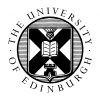© Pint of Science, 2025. All rights reserved.
Dementia is probably the greatest medical challenge that we currently face. The number of people affected is rising each year, yet dementia is the only leading cause of death without a treatment able to slow or stop it. But research can change this. Come hear from Catarina Dias and Dr Jill Fowler about their research into the brain and how it can go wrong in the diseases that cause dementia. This event is being organised in conjunction with ARUK Edinburgh Fundraising Group.
Heroes and villains of the brain with dementia
Catarina Dias
(PhD student)
The world of dementia is full of molecular villains, and although some of these were identified years ago, they have proven hard to stop. In both Parkinson’s and a type of Alzheimer’s, a protein called alpha-synuclein is the villain and has been reported to harm essential processes within brain cells. However, like any good story, there are heroes that rise to the challenge. The word on the street (or just in labs) is that another protein called CHIP might be trying to put up a fight. Come hear how we are studying CHIP to understand whether it has the potential to be a dementia fighting hero.
Why white matter matters
Dr Jill Fowler
(Alzheimer’s Research UK Senior Research Fellow)
The brain has a voracious appetite for energy, despite being only 2% of the body’s weight it requires 20% of the body’s blood supply. However, reductions in blood supply to the brain, blood vessel damage and stroke contribute to degeneration of the brain in dementia. The brain’s white matter is equally as important as grey matter for good memory but is particularly vulnerable to damage following reductions in blood flow. Current research into vascular causes of dementia, mechanisms of damage in grey and white matter, and potential therapeutic strategies will be discussed.
Map data © OpenStreetMap contributors.

